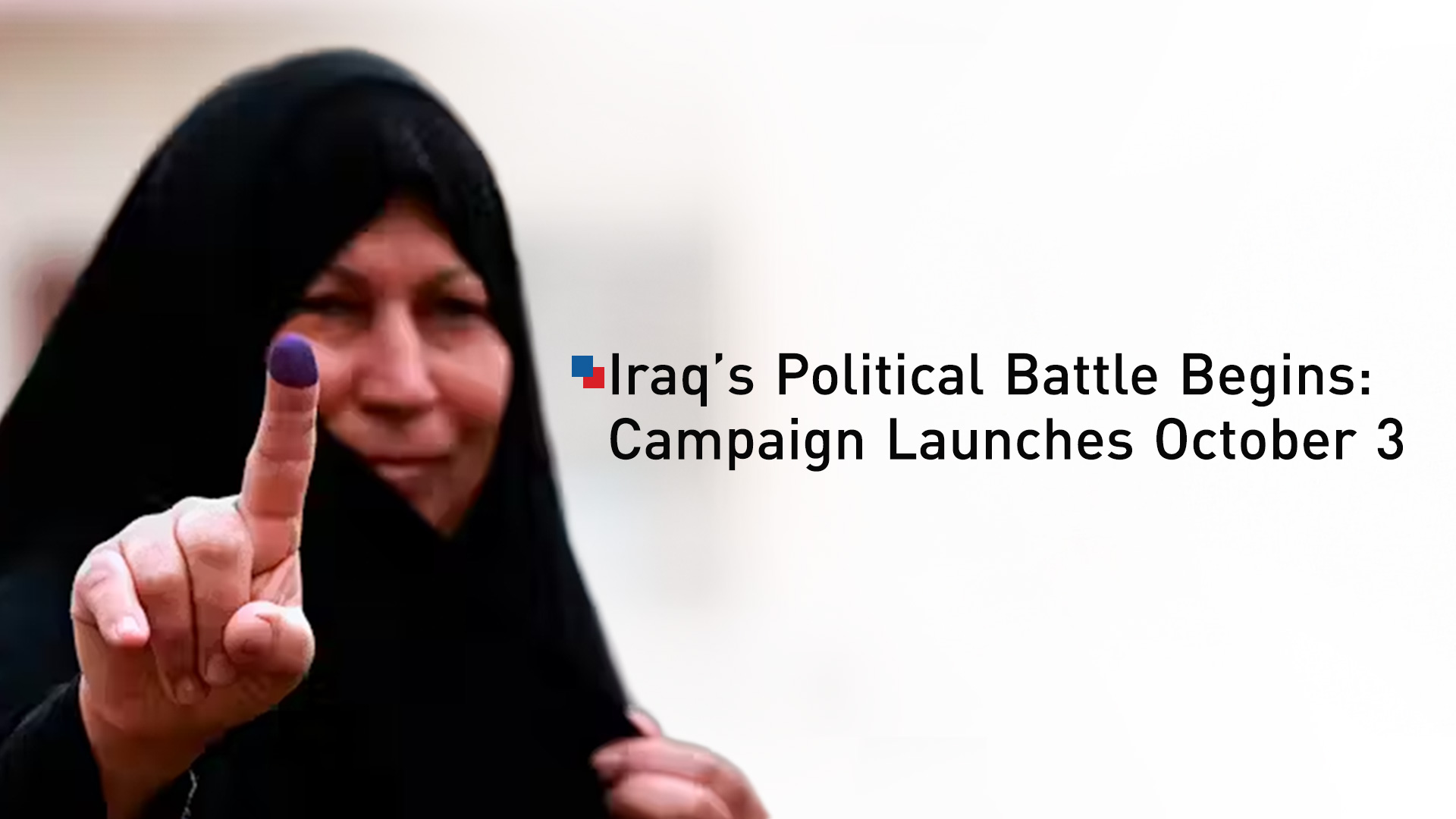Iraq’s Parliamentary Election Campaign Kicks Off October 3, 2025
The campaign launch sets the stage for a vote that could redefine Iraq’s political balance.

ERBIL (Kurdistan24) — Iraq’s parliamentary election campaign is set to officially begin on Friday, October 3, 2025, as the Independent High Electoral Commission finalized the list of 7,768 approved candidates.
The announcement comes ahead of the general vote scheduled for November 11, 2025, marking a critical phase in Iraq’s political calendar and setting the stage for a contentious contest that could reshape the balance of power in Baghdad and beyond.
On Wednesday, Commission spokesperson Jumana Ghalay told Kurdistan24 that the council of commissioners had finalized the list of 7,768 candidates for Iraq’s next parliamentary elections, including 5,520 men and 2,248 women. Ghalay noted, however, that the precise end date for the campaign period has not yet been determined.
The commission has also made decisions regarding candidate eligibility in the past two days, removing 25 candidates from the ballots and reinstating one, citing provisions in Article 7 of Iraq’s parliamentary election law, which focuses on the background and prior criminal or administrative issues of prospective lawmakers.
Out of more than 8,000 initial applicants, nearly 790 were disqualified for reasons ranging from criminal records to unresolved accountability or educational documentation issues.
Political Stakes and Shifting Equations
Observers suggest that the composition of the new parliament could significantly reshape Iraq’s political dynamics. Iran-backed militias, which have maintained strong influence in Iraqi politics and security, may face new constraints amid increased pressure from the United States to reduce Tehran’s footprint in Iraq.
Washington has consistently demanded the disarmament and dismantling of Iran-aligned armed groups involved in attacks against U.S. bases and interests in the country.
“Elections in Iraq are not just a domestic process — they are a key moment in the balance of regional influence,” said political analyst Firas al-Khalidi. “If candidates aligned with Iran-backed militias retain parliamentary seats, the U.S. and its allies will likely increase diplomatic and economic pressure to curtail their power.
Conversely, a shift toward independent or non-militia-affiliated lawmakers could open space for more reform-oriented governance and limit militia influence.”
The removal of some candidates based on prior affiliations or accountability concerns may also signal an attempt by the electoral commission to enforce stricter vetting ahead of the vote.
This could affect the ability of some political factions tied to militias to secure seats, particularly in Baghdad and southern governorates, where Iran-backed parties have traditionally maintained strong support.
Upcoming Election and Regional Implications
With Iraq’s parliamentary elections scheduled for November 11, 2025, all eyes are on voter turnout and the performance of key political blocs. Experts expect that the results will determine whether Iran-backed groups maintain their influence over legislative and security decisions or whether a more independent parliament can emerge.
This outcome is particularly significant as Iraq navigates U.S. demands to neutralize militia operations that threaten American personnel, commercial interests, and regional stability.
In addition to militia influence, the election will test Iraq’s broader political resilience amid economic challenges, corruption concerns, and ongoing security threats from both internal and external actors.
The international community, particularly Washington and European partners, will closely monitor the elections to assess the feasibility of implementing measures aimed at curbing militia influence and supporting state institutions.
The coming weeks will also reveal how Iraqi political alliances respond to voter priorities, including governance, reconstruction, and security.
The final candidate list approved by the commission sets the stage for what could be one of Iraq’s most consequential parliamentary elections in recent years, with both domestic and international repercussions.